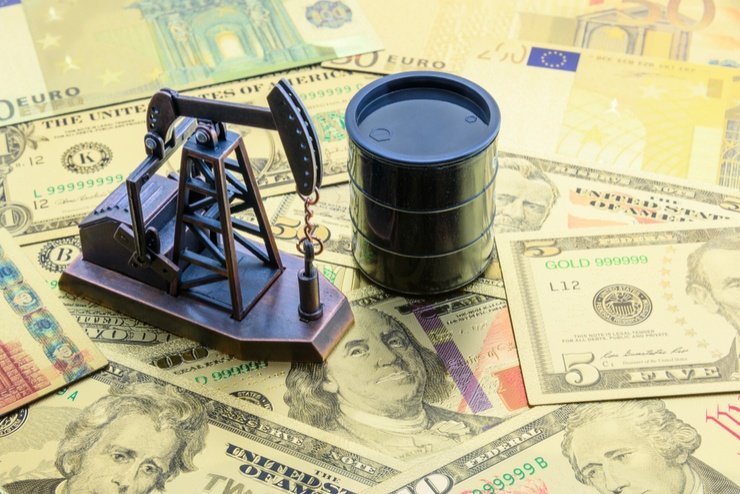Business
The tricky business of investing in commodities
A diversified portfolio is all well and good, but many inexperienced investors seem wary of putting their money in commodities.

The commodities market is known for its volatility, which is why it is most often recommended to active, risk-taking investors looking to generate profits from short-term price movements. But even those who have a buy-and-hold strategy can benefit from commodities, as this sector has the potential to bring diversity to your portfolio and enhance returns to traditional stock-and-bond portfolios.
PIMCO defines commodities as “raw materials used to create the products consumers buy, from food to furniture to gasoline.” They include agricultural products, energy products, and precious and industrial metals like gold, platinum, nickel, and copper. Commodities are important in everyday life, but not all money investors tread into this territory for fear that they require significant amounts of money, time, and expertise.

Yet why would an investor want to invest in commodities? According to Bankrate.com Vice President Greg McBride, it provides diversification for a big portfolio:
“Does someone with a $20,000 portfolio need it? Probably not. But someone with a $200,000 portfolio should certainly look at adding commodity exposure on a cost-effective basis to enhance diversification.”
After all, commodities tend to rise during periods of inflation—the time when a nation’s currency decreases in value and investors seek to preserve their purchasing power. They often move in the opposite direction of stocks and real estate, thereby providing a safety net for your portfolio and acting as a nice hedge.
Another thing that makes commodities so alluring is their potential returns. Prices are driven higher by numerous factors, including increased demand and lack of investments. Over time, these factors are likely to support continued gains in commodity index returns.
There is bound to be a downside though, and that is the fact that commodities fall harder during periods of deflation. NASDAQ recommends being conservative when it comes to allocating commodities in your portfolio. Furthermore, Portfolio Solutions founder Rick Ferri also likens commodities to dead money. “They do not pay any interest or dividends and are not expected to earn any return over the inflation rate… The only thing commodity funds have going for them is the hope that someone will pay a higher price in the future,” he said.

Ways to invest
The most popular way to invest in commodities is through a futures contract, defined by Investopedia as “an agreement to buy or sell, in the future, a specific quantity of a commodity at a specific price.” Often done by commercial and institutional users, investing in a futures contract allows for big profits as it is a pure play on the underlying commodity. However, the futures market is extremely volatile because a trade can easily go against you quickly before you can close your position.
Conservative investors are better off investing in commodities through stocks since these are less prone to volatile swings compared to the futures market. But before investing in stocks, investors need to research first to make sure that the company they are investing in is a good play. Doing so is actually quite easy, considering that information on public companies’ financial situation is readily available for investors.
Another way to invest in commodities is through exchange-traded funds (ETF). They trade like stocks, allowing investors to participate in commodity price fluctuations without directly investing in a futures contract. However, not all commodities have an ETF associated with them, and big movement in commodity prices may not be reflected by the underlying ETF in a detailed manner.
As investors, it is important to determine your risk tolerance and investment profile before you start investing in commodities. As risky as it may sound, investing in commodities can be beneficial for investors who are looking to diversify their portfolio and provide a hedge against inflation.
—
(Featured image by Luts Iryna via Shutterstock)

-

 Africa5 days ago
Africa5 days agoAir Algérie Expands African Partnerships
-

 Crypto2 weeks ago
Crypto2 weeks agoEthereum Pushes AI Integration With ERC-8004 and Vision for Autonomous Agents
-

 Business7 days ago
Business7 days agoDow Jones Near Record Highs Amid Bullish Momentum and Bearish Long-Term Fears
-

 Business2 weeks ago
Business2 weeks agoDow Jones Breaks 50,000 as Bull Market Surges Amid Caution and Volatility






![Kevin Harrington - 1.5 Minutes to a Lifetime of Wealth [OTC: RSTN]](https://born2invest.com/wp-content/uploads/2023/12/kevin-harrington-400x240.jpg)
![Kevin Harrington - 1.5 Minutes to a Lifetime of Wealth [OTC: RSTN]](https://born2invest.com/wp-content/uploads/2023/12/kevin-harrington-80x80.jpg)
![RDE, Inc. [ OTC: RSTN ] is set to soar in a perfect storm](https://born2invest.com/wp-content/uploads/2024/02/pexels-burak-the-weekender-187041-400x240.jpg)
![RDE, Inc. [ OTC: RSTN ] is set to soar in a perfect storm](https://born2invest.com/wp-content/uploads/2024/02/pexels-burak-the-weekender-187041-80x80.jpg)















